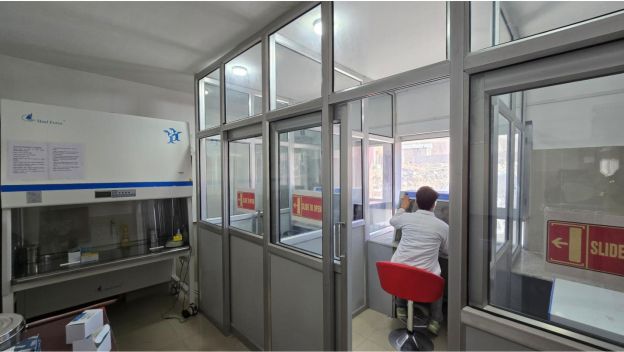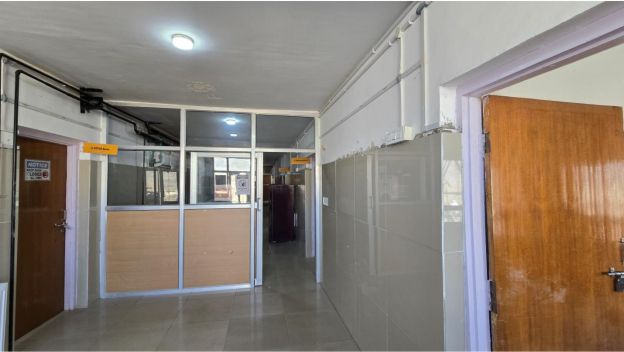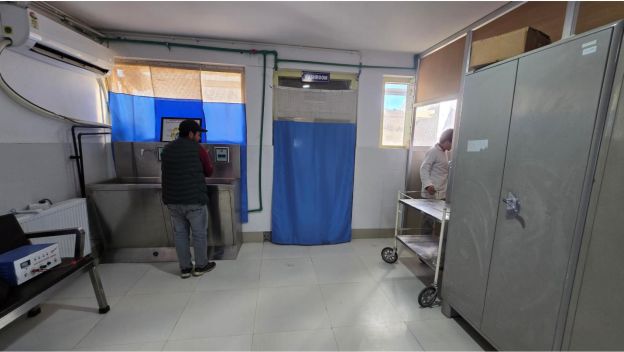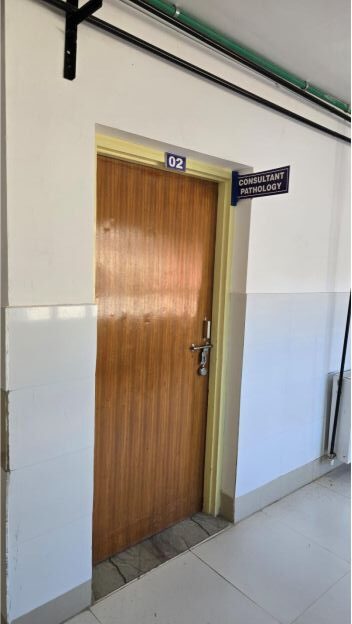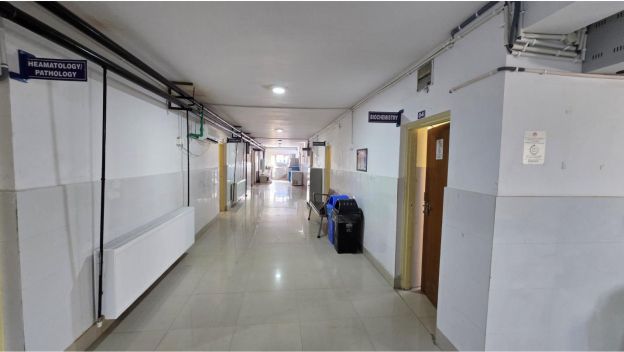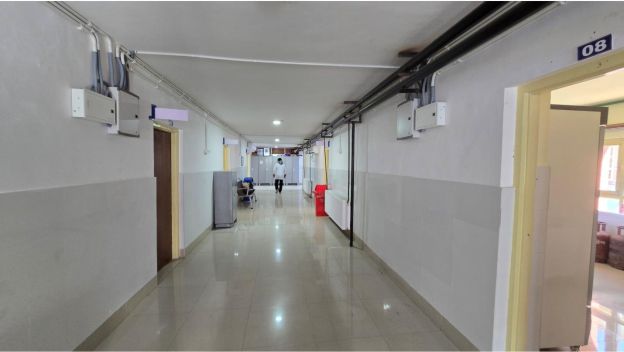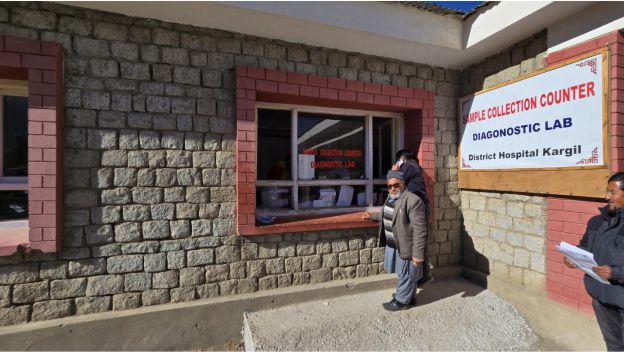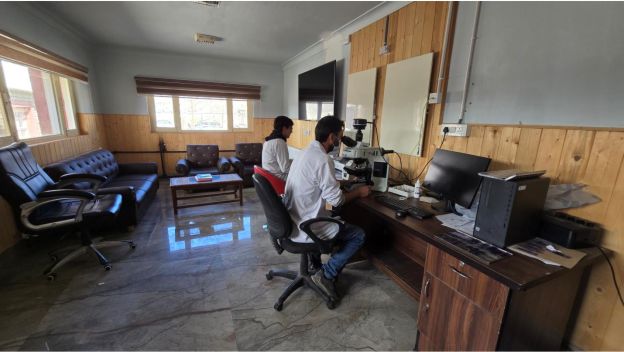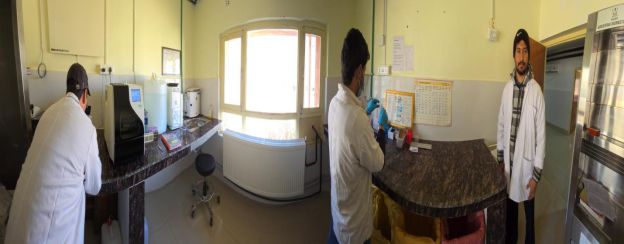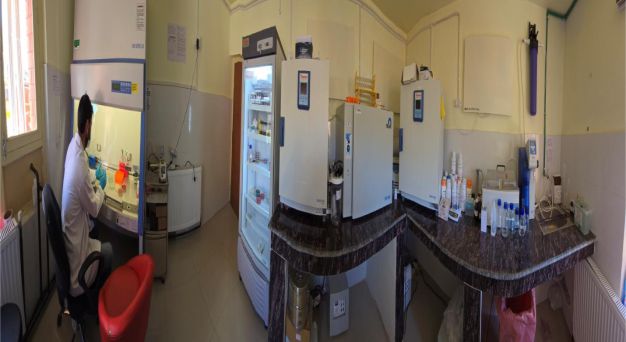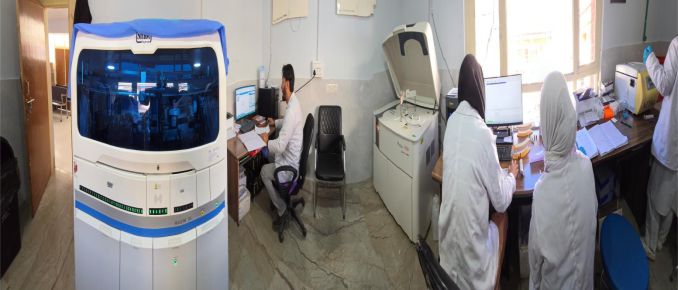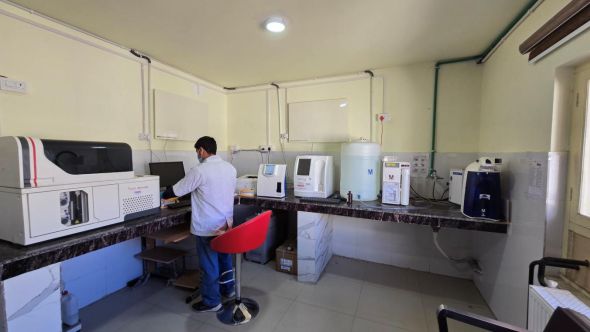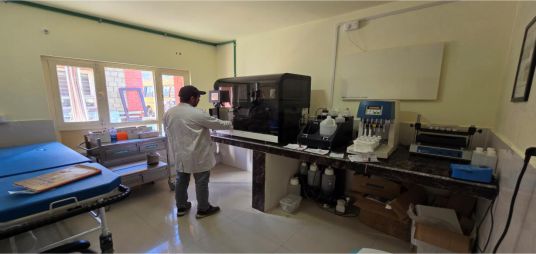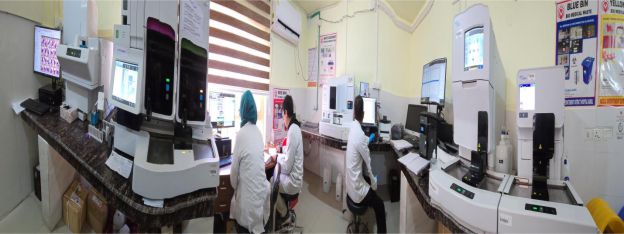
Department of Pathology
The Central Diagnostic Center at the District Hospital in Kurbathang, Kargil, has emerged as a crucial healthcare facility since its establishment in 2020. With over five years of operation, the center has significantly advanced its diagnostic capabilities by incorporating cutting-edge, fully automated instruments. These technologies ensure accurate, efficient, and reliable results, benefiting both patients and healthcare providers alike.
The center offers a wide range of diagnostic testing services, including:
- Cytology: The use of a fully automated PAP stain instrument for detecting cancers and other cellular abnormalities, improving early detection and diagnosis.
-
Hematology: With the aid of artificial intelligence, the hematology department specializes in blood tests such as complete blood counts (CBC), blood coagulation profiles, and tests for various blood disorders. AI enhances accuracy and speeds up the testing process.
-
Biochemistry: The biochemistry section features fully automated systems for blood analysis, as well as the Sysmax fully automated urine analyzer for biochemical and microscopic urine examination. This helps assess organ function, metabolic disorders, and a wide range of biochemical markers.
-
Biochemistry: The biochemistry section features fully automated systems for blood analysis, as well as the Sysmax fully automated urine analyzer for biochemical and microscopic urine examination. This helps assess organ function, metabolic disorders, and a wide range of biochemical markers.
-
Immunoassay: The center utilizes chemiluminescence immunosorbent assay (CLIA) technology, a fully automated system, for the analysis of hormones, antibodies, cancer markers, and other proteins. These tests are crucial in diagnosing various health conditions, from hormonal imbalances to cancers.
-
Microbiology: The microbiology department is equipped with fully automated blood culture systems, microbial identification tools, and antibiotic sensitivity testing for identifying infections caused by bacteria, fungi, and parasites. This enhances the accuracy and efficiency of infection diagnosis and treatment.
-
Molecular Biology: Advanced molecular biology tools, including real-time PCR with fully automated RNA extractors, are used to analyze DNA, RNA, and other genetic materials. This is essential for the diagnosis of various genetic and infectious diseases. Additionally, the center is equipped with designated microscopy to rule out Mycobacterium tuberculosis and uses HPLC (High-Performance Liquid Chromatography) for tests such as thalassemia screening and HbA1C analysis.
Technological Advancements:
The incorporation of fully automated instruments at the center ensures that diagnostic results are not only more accurate but also quicker. This automation minimizes human error, reduces turnaround times, and enhances the overall quality of diagnostics, contributing to better patient care. These advanced systems are instrumental in offering precise diagnostic results for a wide variety of conditions, which is crucial for informed treatment decisions.
Real-Time Diagnostic Integration with ABDM:
A standout feature of the Central Diagnostic Center is its integration with the Ayushman Bharat Digital Mission (ABDM), enabling real-time diagnostic results. This digital integration allows for seamless recording and sharing of patient health data, facilitating easy access to past health records. By linking diagnostic results to the patient's digital health record, it enhances continuity of care, empowering healthcare providers to make more informed decisions during future diagnoses and treatments.
Conclusion:
The Central Diagnostic Center in Kurbathang stands at the forefront of diagnostic technology in the region. With its fully automated systems and real-time data integration through ABDM, it significantly improves healthcare delivery in Kargil and the surrounding areas. Patients benefit from timely, accurate, and reliable diagnostic services, contributing to better health outcomes and streamlined healthcare processes. This integration of advanced technology ensures that both present and future diagnoses are based on the most up-to-date, comprehensive health information.

